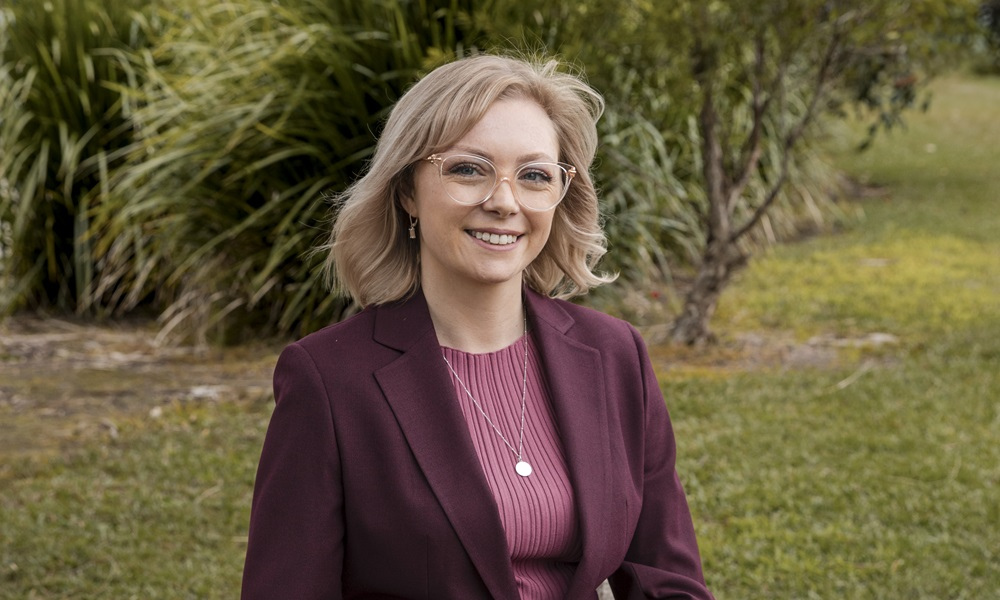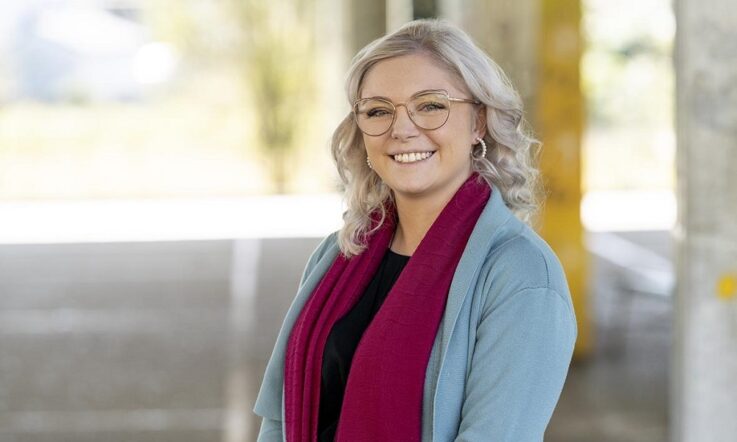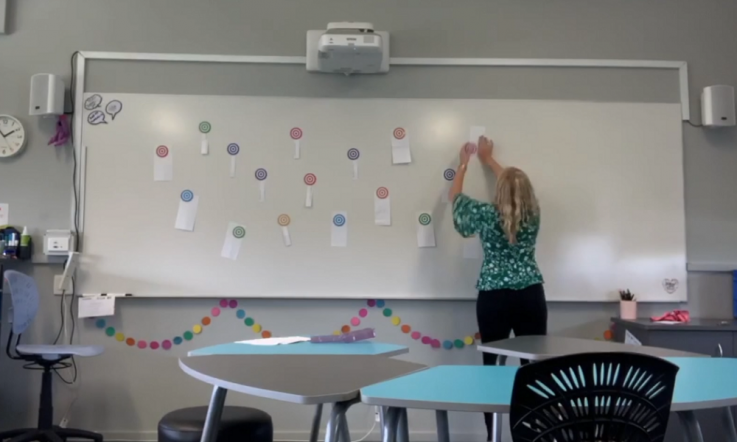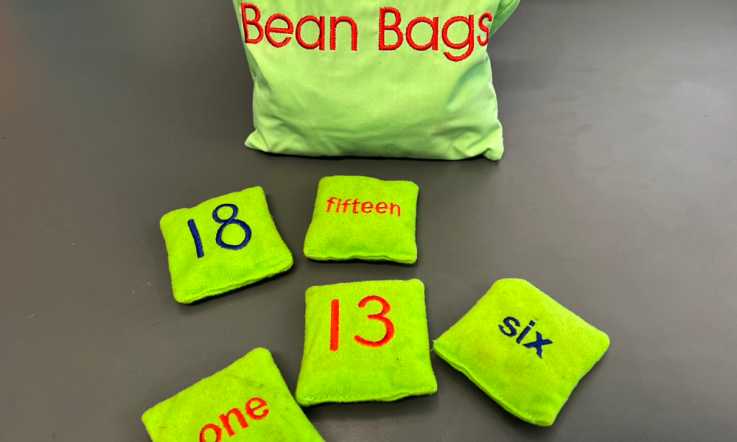‘I wanted to make a meaningful change in how our kids see themselves as mathematicians. They talk about maths completely differently now. They ask more questions, they take more risks, they see maths as something that they can be a part of rather than something that they're just passively doing in class.’ Mathematics teacher Holly Wedd has made a significant difference to the way students at her school succeed in maths by boosting their confidence and reducing mathematics anxiety. Her efforts have been recognised with 2 recent accolades – she won a 2025 Schools Plus Teaching Award and was also named one of 15 recipients of the 2026 New South Wales Premier’s Teacher Scholarship. In today’s article Wedd shares what these awards mean to her, she tells us about a combined maths and English program that she co-designed, and how she’s keen to learn more about enhancing mathematics learning through artificial intelligence.
At Orara High School in Coffs Harbour on the mid-North coast of New South Wales, Head Teacher of Mathematics Holly Wedd co-designed an innovative subject that has seen a boost in student confidence and performance.
At the school, 24% of students identify as Aboriginal or Torres Strait Islander, 20% come from EALD or refugee backgrounds and over 40 languages are spoken.
‘It's a really vibrant community. Our students come from a wide range of backgrounds,’ Wedd tells Teacher.
After noticing a pattern where students identified as confident in English, but less so in maths, and vice versa, Wedd collaborated with Head of English Kate Twigg to design a combined maths and English program for year 10 students.
‘Both subjects have the same fundamental skills – reasoning, logic, communication, problem solving. That is at its base what makes up both maths and English. And so, we thought, “what if we created a program that actually makes those links explicit?”’
As an example, students in the elective subject working on logic in mathematics also applied the same principals to persuasive writing. When working on data, they explored how you can tell a story through journalism or poetry, while also understanding the mathematics behind analysing that data.
‘I wanted to reframe maths as something that was creative and meaningful and make it a place that students could explore and question and make those connections. And I know that Kate wanted the same from an English perspective as well,’ Wedd shares.
The subject was delivered to 20 year 10 students in 2024 and has since been transformed into a lunchtime club called Numbers, Nibbles and Scribbles for all students in 2025.
‘It's become a really student directed lunchtime club – now I'm there as a facilitator more than anything. It's been actually really beautiful because the year 11 students were the ones who did [the elective] in year 10,’ Wedd shares.
While the elective is no longer running, the impact it made on these students lives on. Wedd credits it for doubling enrolments in Advanced and Extension Maths, and supporting 100% of participating students to continue into Stage 6.
‘Generally speaking, the cohorts we have come through struggle to identify with Advanced and Extension Maths and English,’ Wedd shares.
‘This year's year 11, we had 24 students choose Advanced Maths, which was the highest numbers in over a decade, we had 14 choose Extension 1 and this term now we have just started our first Extension 2 cohort since 2022 – all from this program.
‘It wasn't just about the content, it was about showing them that you don't just have to be the naturally gifted people to make it in Advanced and Extension Maths. I wanted to make a meaningful change in how our kids see themselves as mathematicians. They talk about maths completely differently now. They ask more questions, they take more risks, they see maths as something that they can be a part of rather than something that they're just passively doing in class.’
It also has encouraged them to take on leadership roles in the lunchtime sessions, offering to mentor younger students in mathematics.
‘Their confidence in communicating, not just with me as a teacher, but with each other and with now the younger students that they're mentoring in this same program has, I think, really boosted their confidence.
‘I think that their ability to explain things, but also justify their reasoning, has led to this increase in not just their confidence and their engagement, but also their marks. If you look at the marks of the class as a whole compared to previous years, everything is just lifted, which is fantastic to see. It's been about empowering the students to believe in their own potential.’
Boosting confidence and reducing maths anxiety
Wedd says that maths anxiety is something that she takes really seriously in her classroom because she’s seen the impact that it can have on student confidence.
‘I have seen the smartest kids who can verbally tell me all of the answers, get sat in an exam and completely melt down and not be able to answer anything. I was one of those kids in high school myself,’ she shares.
Wedd says it often stems from conversations students have with both their parents and peers about ‘not being good at maths’ – a message that she is keen to change in her classroom.
‘The first thing that I really try to do to tackle this is change the environment. We do a lot of our work standing up at whiteboards. We have whiteboards on all the walls of the classroom, and we work in small groups. So rather than working individually where it's only your work, you're working with other people, which means that the pressure's never just all on you.’
Wedd also uses a lot of ‘low floor, high ceiling’ tasks so that every student can access the content. ‘Everyone can start with it, but it goes narrow and deep and allows those students who can extend themselves the opportunity to do that while not disadvantaging the lower end of the scale,’ she explains.
‘And something else that I do is I openly will talk about the struggle. I will tell the kids, “mathematicians failed for hundreds of years to prove things, I don't expect you to get it right on your first time”.’
Collective efficacy and supporting each other to improve
Outside the classroom, Wedd is making an impact on maths education across NSW. She supports more than 450 teachers in remote and regional areas through her role as the Rural Learning Exchange Mathematics Network Facilitator. The network brings schools together through a collaborative of 13 high schools in the Coffs Harbour–Clarence Valley region.
She’s also deeply involved in shaping the future of maths teaching as a Board Member of the Mathematics Association of NSW, a lecturer at Southern Cross University and a maths mentor at the University of Newcastle, helping train the next generation of educators.
‘I am a big believer in collective efficacy,’ Wedd says. ‘I think that as teachers, not just within maths but teaching as a whole, it's collective work. We grow and we learn best when we're working together and when we're supporting each other to improve. I think that my involvement in all of the networks keeps me connected to all of that and helps me keep my finger on the pulse.’
Using AI to enhance mathematics
In late September, NSW Premier Chris Minns awarded 15 teachers with a 2026 Premier’s Teacher Scholarship. Each recipient received $15,000 in funds for a 5-week study tour during 2026. Wedd won the Premier’s Mathematics Scholarship to put towards her project: Enhancing mathematics learning through artificial intelligence.
‘AI is a bit of a passion of mine. It's something that's obviously so new in education and it's changing so quickly. I want to help highlight the innovation that's happening in my school and in other regional schools in the area to do with AI,’ she says.
With the funds, Wedd plans to travel to the US and UK in January – she will be heading to University of California, Berkeley (UC Berkeley), as well as visiting multiple schools in New York and Los Angeles with AI integrated systems.
‘[These schools] are doing things like having AI teach the lessons for them. They’re using them as an instant feedback tool for the students and actually getting that circular feedback through a Socratic model to make it so that the kids aren't just going “what's the answer?” and the AI saying “it's 12” – it's getting them to actually think through the steps that they would have to go through to get to the answer,’ Wedd shares.
‘And so, I get to go and see what this looks like in practice and ask, “how are you guys ensuring that the moral and ethical implications of this are understood and underpinned and it's all working as it should?”, because it's something that's so new that we don't have here yet.’
Wedd will also visit Google, the UCL Centre for Artificial Intelligence, and the Alan Turing Institute, and hopes to visit Cambridge University and Oxford University while in the UK.
‘I really want to translate what I learn over there into equitable strategies that are going to work in our classrooms here in Australia, and especially in the rural areas. How can we make sure that the access is in fact equitable?’ she says.
Stay tuned: We will be catching up with Holly Wedd in 2026 after she returns from her study tour to hear what she learned, her biggest takeaways, and how she plans to enhance the use of AI in her mathematics lessons.
How do you currently support students who experience maths anxiety in your classroom? Which strategies have proved most effective? Have you noticed changes in student confidence or engagement as a result of these strategies?
Thinking about your own classroom, in what ways can you make cross-curricular connections? How might you highlight shared skills like reasoning, logic, communication, and problem solving?



